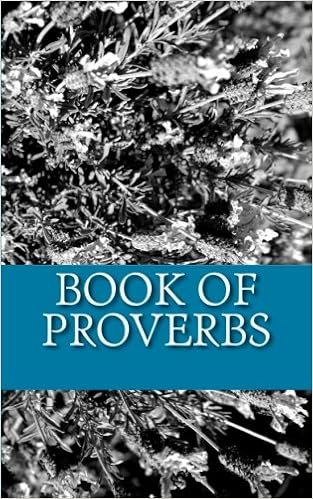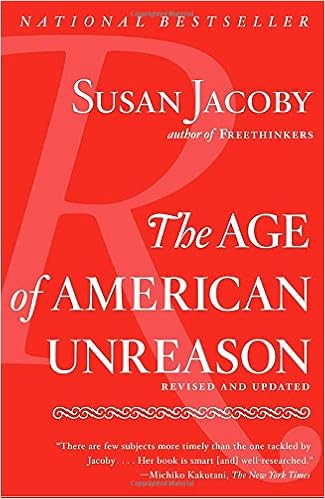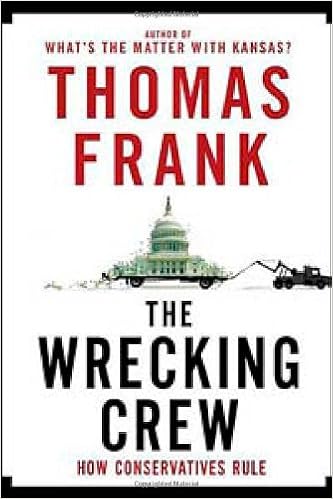Guided Reading Activity 8 4 the Executive Office
Last week, I provided a list of books that inspired former President Obama while he was in office as well as Obama's favorite novels of all time. Today's column is a list of books that President Trump could benefit from reading while he's in the White House.
Trump gets a bad rap when it comes to books. Supposedly he doesn't read them, but his own books, while ghost-written, show familiarity with popular ideas about business and entrepreneurial behavior.
I, for one, do not believe that Trump has never read a book cover-to-cover, as many have claimed. For one thing, he's endorsed books by other authors and surely nobody would ever do that without actually reading the book in question, right? No, wait...
In any case, some of the books I'm recommending that Trump read while in office will be familiar to readers of the column, since I've previously named several of them as business classics, even though they're not usually categorized in that genre.
With no further ado, here's my list:
 1. The Book of Proverbs
1. The Book of Proverbs
Author: Anonymous
Why He Should Read It: Since much of Trump's base of support comes from evangelical Christians and he apparently intends to support the most conservative faction in Israel, Trump should consider familiarizing himself with the Bible. The Book of Proverbs has the advantage of containing wisdom that's entirely non-sectarian and can be read (and duly pondered) in bite-sized chunks, especially with a modern translation.
Best Quote: "A good leader motivates, doesn't mislead, doesn't exploit. God cares about honesty in the workplace; your business is his business. Good leaders abhor wrongdoing of all kinds; sound leadership has a moral foundation. Good leaders cultivate honest speech; they love advisors who tell them the truth. An intemperate leader wreaks havoc in lives; you're smart to stay clear of someone like that. Good-tempered leaders invigorate lives; they're like spring rain and sunshine. Get wisdom - it's worth more than money; choose insight over income every time. The road of right living bypasses evil; watch your step and save your life. First pride, then the crash - the bigger the ego, the harder the fall. It's better to live humbly among the poor than to live it up among the rich and famous. It pays to take life seriously; things work out when you trust in God." (Proverbs 16, 10-20)
 2. The March of Folly
2. The March of Folly
Subtitle: From Troy to Vietnam
Author: Barbara W. Tuchman
Why He Should Read It: Now that Trump has the capability to destroy the world, he should be aware of the wooden-headed thinking that draws government into pursuing policies that are contrary to their own interests. If George W. Bush (and his many enablers on both sides of the aisle) had read this book carefully, they never would have gotten the US involved in Iraq.
Best Quote: "A principle that emerges in the cases so far mentioned is that folly is a child of power. We all know, from unending repetitions of Lord Acton's dictum, that power corrupts. We are less aware that it breeds folly; that the power to command frequently causes failure to think; that the responsibility of power often fades as its exercise augments. The overall responsibility of power is to govern as reasonable as possible in the interests of the state and its citizens. A duty in that process is to keep well-informed, to heed information, to keep mind and judgment open and to resist the insidious spell of wooden-headedness. If the mind is open enough to perceive that a given policy is harming rather than serving self-interest, and self-confident enough to acknowledge it, and wise enough to reverse it, that is a summit in the art of government."
 3. The Age of American Unreason
3. The Age of American Unreason
Author: Susan Jacoby
Why He Should Read It: Much of Trump's base of support is openly hostile not just towards higher education and intellectuals, but towards the very idea that the ability to reason from facts. This book explains how anti-rationalism has grown in the United States, creating a cultural predisposition towards opposite of reason and logic: which is, of course, foolishness and nonsense.
Best Quote: "People throughout the world must cope with social, economic, and technological changes that call traditional verities into question, and the empire of mind-numbing infotainment knows no national boundaries. Yet the United States has proved much more susceptible than other economically advanced nations to the toxic combination of forces that are the enemies of intellect, learning, and reason, from retrograde fundamentalist faith to dumbed-down media. What accounts for the powerful American attraction to values that seem so at odds not only with intellectual modernism and science but also with the old Enlightenment rationalism that made such a vital contribution to the founding of our nation? Any attempt to answer these questions must begin with the paradoxical cultural and political forces that shaped the idea of American exceptionalism even before there was an American nation and became an integral part of the American experiment during the formative decades of the young republic. Many of these forces combine a deep reverence for learning with a profound suspicious of too much learning, and they have persisted and mutated, through economic and population changes that the first generation of Americans could never have envisaged, into our current age of unreason."
 4. The Wrecking Crew
4. The Wrecking Crew
Subtitle: How Conservatives Ruined Government, Enriched Themselves, and Beggared the Nation
Author: Thomas Frank
Why He Should Read It: Since Trump is forced by nature of two-party politics to implement his "drain the swamp" initiative through conservative Republicans, he should be aware that the failure of government to accomplish positive goals over the past few decades as well as the destruction of the U.S. manufacturing sector is largely the result of conservatives looting government coffers through privatization.
Best Quote: "People underinvest in politics, Norquist told me. When he speaks to business leaders, Norquist makes a point of informing them about the potential rate of return on a political expenditure. He referred me to an article in Fortune reporting that 'the return on lobbying investments can be truly enormous.' Number like 163,536 percent are thrown around. And then it struck me, sitting there in the Palm, surrounded by all those grinning gargoyles of power brokers past, that Norquist was hinting at something both ingenious and incredibly malevolent: a systematic connection between conservative politics and private profit. Consider what the liberal order had to offer, back in its heyday: affluence for most, civic peace, and a certain amount of social justice. When the liberal machine worked, it delivered 5 or 6 percent growth per year - a great deal for the nation, but a handful of crumbs when compared to the return-on-investment that Norquist was talking about. Who will stand up for the liberal state when there are hundred-thousand-fold returns to be made from wrecking it? Money gravitates to right-wing pressure groups like Norquist's - as well as the Club for Growth, and the Chamber of Commerce - because that is the rational thing for money to do. That's how you deliver shareholder value. And the conservative movement delivered."
 5. The Demon-Haunted World
5. The Demon-Haunted World
Subtitle: Science as a Candle in the Dark
Author: Carl Sagan
Why He Should Read It: Trump and his appointees have largely shown a disregard of science, as if climate change and vaccination were matters of opinion rather than established fact. While there's little evidence that this anti-science foolishness troubles Trump, he should be aware that our civilization is based upon the ability to think scientifically and that this ability is constant under siege by ignorance and pseudoscience.
Best Quote: "Scientific findings and attitude were common in those who invented the United States. The supreme authority, outranking any personal opinion, any book, any revelation, was - as the Declaration of Independence puts it - 'the laws of nature and of nature's GOD.' Benjamin Franklin was revered in Europe and America as the founder of the new field of electrical physics... Thomas Jefferson was a scientist. That's how he described himself. When you visit his home at Monticello, Virginia, the moment you enter its portals you find ample evidence of his scientific interests--automatic doors, telescopes, and other instruments, some at the cutting edge of early nineteenth-century technology. Some he invented, some he copied, some he purchased. He compared the plants and animals of America with Europe's, uncovered fossils, used the calculus in the design of a new plow. He mastered Newtonian physics... Once independence was one, he said, later generations could devote themselves to science and scholarship."
 6. An Illustrated Book of Bad Arguments
6. An Illustrated Book of Bad Arguments
Subtitle: Learn the Lost Art of Making Sense
Author/Illustrator: Ali Almossawi
Why He Should Read It: Trump's speeches and tweets are full of logical fallacies which seem sensible, but only to people who lack education and/or the ability to think logically. Since some of his ideas may have merit, Trump might appreciate the ability to frame those arguments in ways that will convince more than just his semi-literate base. Also, it has funny pictures.
Best Quote: "Guilt by association is used to discredit an argument for proposing an idea that shared by some socially demonized individual or group. For example, 'My opponent is calling for a healthcare system that would resemble that of socialist countries. Clearly, that would be unacceptable.' Whether the proposed healthcare system resembles that of socialist countries has no bearing whatsoever on whether it is good or bad; it is a complete non-sequitur. Another argument, which has been repeated ad nauseam in some societies, is this: 'We cannot let women drive cars because people in godless countries let their women drive cars.' Essentially, what these examples try to argue is that some group of people is absolutely and categorially bad. Hence, sharing even a single attribute with the group would make one a member of it, which would then bestow on one all the evils associated with that group."
 7. The Decline and Fall of the Roman Empire
7. The Decline and Fall of the Roman Empire
Author: Edward Gibbon
Why He Should Read It: I believe Trump could take encouragement from this classic work from the Age of Reason, which describes how the Roman Empire survived for almost 1,500 years. He'll learn that the most capable emperors tended to be morally ambiguous (at best) while the least capable tended to be pious and God-fearing. A notable exception to this rule was Justinian (c. 482 to 565), who was both pious and capable; however, his piety was ameliorated by his wife and co-ruler, the Empress Theodora, a former prostitute. Note: Trump should get an edition with the Latin in the footnotes translated, since Gibbon kept all the racy bits in the original language.
Best Quote: "On the throne of the world he found himself without a friend, and even without an adherent. The guards themselves were ashamed of the prince whom their avarice had persuaded them to accept; nor was there a citizen who did not consider his elevation with horror, as the last insult on the Roman name. The nobility, whose conspicuous station and ample possessions exacted the strictest caution, dissembled their sentiments, and met the affected civility of the emperor with smile of complacency and professions of duty. But the people, secure in their numbers and obscurity, gave a free vent to their passions. The streets and public places of Rome resounded with clamors and imprecations. The enraged multitude affronted the person of Julian, rejected his liberality, and conscious of the impotence of their own resentment, they called aloud on the legions of the frontiers to assert the violated majesty of the Roman Empire."
 8. The Complete Yes Minister
8. The Complete Yes Minister
Authors: Jonathan Lynn and Antony Jay
Why He Should Read It: As fun as it must have been for Trump to appoint former Texas governor Rick Perry the head of an agency that he promised to abolish, the swiftness with which Perry "discovered" that the agency was, in fact, incredibly important foreshadows what will happen when Trump tries to slim down the federal government. This book perfectly describes the process by which permanent government employees "housebreak" outsiders who are given titular control over them.
Best Quote: "'Do you know what the Civil Service is saying about you?' I shook my head nervously. 'That you're a pleasure to work with.' A rush of mixed emotions overwhelmed me. First relief. Then pleasure and pride. Then, suddenly, a dreadful realization of the awfulness of what he had just revealed! 'That's what Barbara Woodhouse says about her prize-winning spaniels,' he added."
 9. The New Jim Crow
9. The New Jim Crow
Subtitle: Mass Incarceration in the Age of Colorblindness
Author: Michelle Alexander
Why He Should Read It: Trump's inaugural speech expressed a desire to treat all Americans equally. Unfortunately, since he's accepted the support of, and surrounded himself with, white supremacists, Trump might want some additional perspective. This book explains how the legal system has been rigged to put black men in jail for crimes that go unpunished when committed by white men, thereby preventing economic growth among a huge swath of the population.
Best Quote: "What has changed since the collapse of Him Crow has less to do with the basic structure of our society than with the language we use to justify it. In the era of colorblindness, it is no longer socially permissible to use race, explicitly, as a justification for discrimination, exclusion, and social contempt. So we don't. Rather than rely on race, we use our criminal justice system to label people of color 'criminals' and then engage in all the practices we supposedly left behind. Today it is perfectly legal to discriminate against criminals in nearly all the ways that it was once legal to discriminate against African Americans. Once you're labeled a felon, the old forms of discrimination--employment discrimination, housing discrimination, denial of the right to vote, denial of educational opportunity, denial of food stamps and other public benefits--are suddenly legal. As a criminal, you have scarcely more rights, and arguably less respect, than a black man living in Alabama at the height of Jim Crow. We have not ended racial caste in America; we have merely redesigned it."
Guided Reading Activity 8 4 the Executive Office
Source: https://www.inc.com/geoffrey-james/9-books-that-trump-should-but-probably-wont-read-while-in-office.html
Belum ada Komentar untuk "Guided Reading Activity 8 4 the Executive Office"
Posting Komentar